Mass celebrations scrapped in favour of stay-at-home orders as the world welcomes in 2021
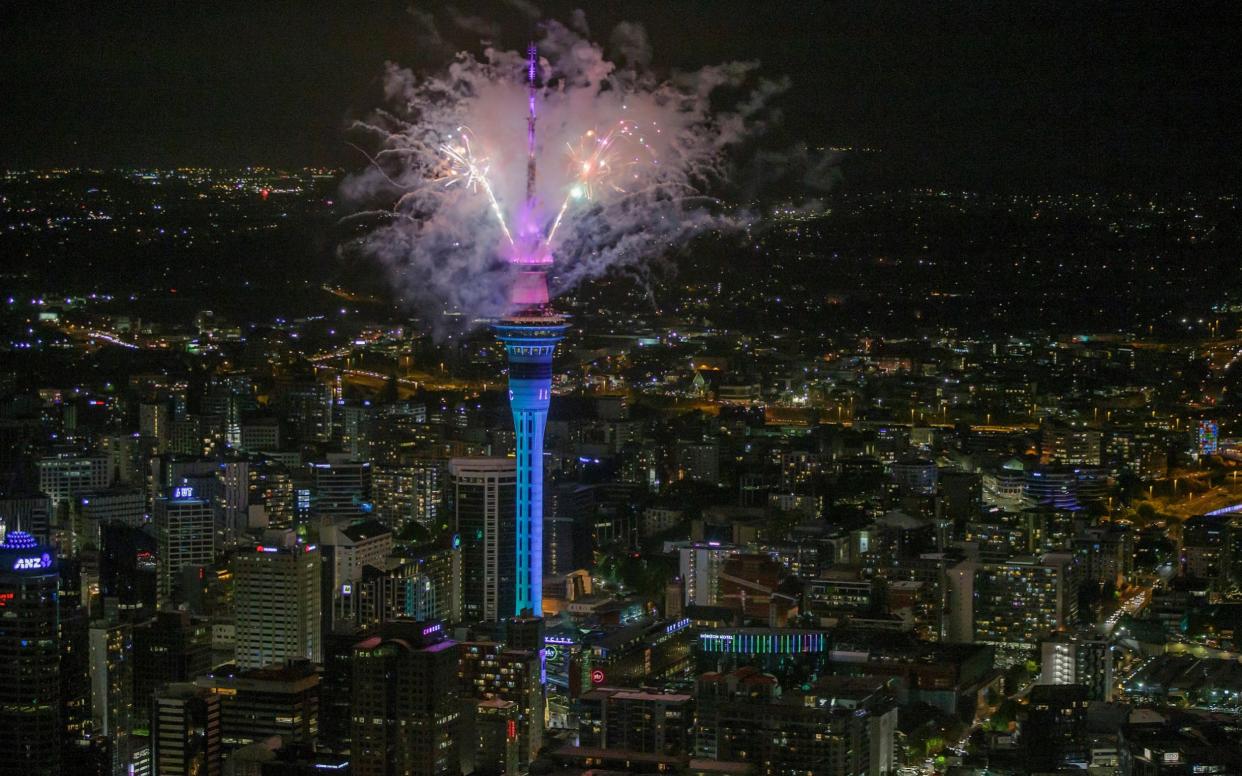
People around the world have begun welcoming in 2021, with New Zealand and the small island nations of Tonga and Samoa the first in the world to hold muted celebrations on a New Year's Eve like not other.
In Auckland, small crowds gathered to watch the firework celebrations. New Zealand has largely defeated the coronavirus pandemic, with just 25 deaths recorded during the pandemic.
With ongoing coronavirus restrictions on every continent, usual mass public celebrations have been scrapped in favour of stay-at-home orders and limits to gatherings as coronavirus cases continue to spread.
From the New York Times Square ball drop going virtual to a ban on watching the fireworks from Sydney’s harbour, below is a rundown of the unprecedented steps some of the world’s major cities are taking this New Year’s Eve to prevent the spread of Covid-19.
Sydney
The Australian city’s world-famous midnight firework display over its iconic harbour normally draws around one million people. This year, it is still going ahead, but it has been slashed from 12 minutes to just seven and the smaller 9pm display has been cancelled.
Locals will also struggle to see it up close in person. On December 31, Sydney’s city-centre - encompassing the Central Business District (CBD) and waterfront vantage points in parts of north Sydney - will effectively be a no-go zone.
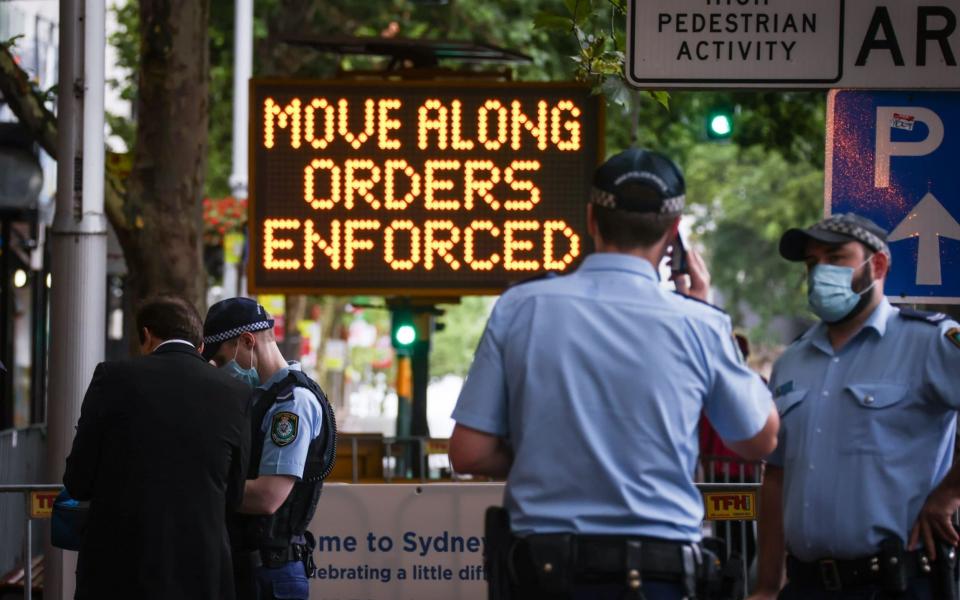
All fireworks viewing events in the area have been cancelled unless they have a permit, and entry will only be allowed for residents who live there or up to 10 of their guests, all of whom must have a special NYE pass.
Household gatherings will be restricted to five visitors, while those gathering at outdoor events will see the cap reduced from 50 to 30.
Those with bookings at restaurants, hotels or bars will also be allowed in, but all hospitality businesses must adhere to the one person per four square metres rule.
Most waterfront parks and viewing areas will be closed on the night, but residents further out of the centre will be allowed to gather in local public spaces so long as they are socially distanced.
New South Wales Premier Gladys Berejiklian said: “My strong message to everyone is to watch the fireworks on TV.”
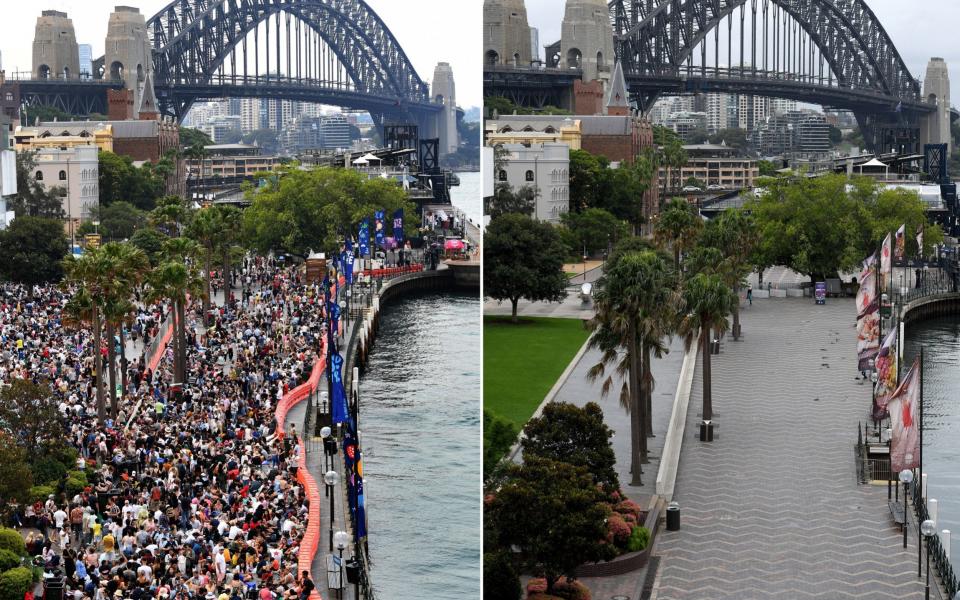
Taipei
Seen globally as a model for containing the outbreak of the virus, many cities on the island of Taiwan are preventing public attendance at firework displays, instead encouraging locals to watch the festivities on TV.
But in the capital of Taipei, the city government is allowing in-person attendance to its New Year's events, as well as broadcasting them live - including fireworks set off from the outside of the iconic Taipei 101, once the world's tallest building.
The number of attendees permitted at the main viewing spot has been slashed in half from the 80,000 originally planned to 40,000. All those in attendance will be required to wear a mask and register personal details to authorities for track and trace.

Taipei Mayor Ko Wen-je defended the move not to cancel the activities, saying that Taiwan had no community transmission and all correct precautions were being taken.
"Don't be defeated by irrational fear," he told reporters.
The government has been unnerved by Taiwan’s first domestic transmission since April, confirmed this month, and first case of the British variant, announced on Wednesday. It confirmed a second case on Thursday.
Paris
Any thoughts of roaming through the streets of Paris with friends and a bottle of champagne are off – France currently has an 8pm to 6am curfew in place and it won’t be lifted for New Year’s Eve.
Bars, restaurants and nightclubs will remain closed as well and large gatherings in public are still banned, with police set to be out patrolling to break up groups of more than 10.

That means most people will be celebrating from home, which is allowed for up to six people so long as they respect the curfew.
100,000 police officers are being mobilised across France to break up parties, while half of the lines on the Paris metro will be closed.
The traditional fireworks have been cancelled, and instead, Paris will be hosting one of the world’s more ambitious virtual events to mark the end of the year.
Electronic music pioneer Jean-Michel Jarre will be playing a free, livestreamed virtual reality concert from “inside” the Notre-Dame cathedral.
Under the patronage of Unesco, Jarre will perform a 45-minute set titled Welcome to the Other Side in a 3D recreation of the Paris landmark, which has been closed to the public since it was devastated by a fire in April 2019.

Dubai
Dubai will host a record-breaking, live-streamed concert, with the glam-rock band Kiss performing in front of the Atlantis Hotel.
‘Kiss 2020 Goodbye’ has a fireworks budget of $1 million, and while there will be no in-person attendees, a further $750,000 has been set aside in order to ‘pandemic-proof’ the event.
Gene Simmons, the bassist, told The Telegraph that the fireworks will be “the biggest pyro show since Krakatoa.”
A team of 400 people have been drafted in to construct the stage, while 6,000 Covid tests will be taken by workers in order to ensure the virus does not spread.
Those wishing to stream the event can do so at a cost of £39.
Tokyo
More so than massive parties, part of the New Year’s Eve ritual in Japan involves visits to the country’s biggest Shinto shrines and temples.
One of the most popular is Tokyo’s revered Meiji Shrine, which usually sees around 3 million visitors paying their respects between December 31 and January 3 alone.

But this year, century-old Meiji will close its doors over the country’s most important holiday for the first time since the end of the Second World War, urging people to visit another day instead.
Other religious sites are asking visitors to book tickets ahead so they can control the crowds.
Elsewhere in the city, nightclubs are still open, but most of the city’s major mass countdown events have been moved online or cancelled altogether.
That includes the hugely popular annual Scramble Crossing event at a giant, five-way pedestrian crossing in Shibuya neighbourhood, where around 100,000 people from around Japan normally gather to usher in the new year.
To limit crowds and discourage out-of-towners, city railway and subway operators are also scrapping their usual all-night service throughout the megalopolis, with Tokyo Metro cancelling train services on December 31 and January 1.
Prime Minister Yoshihide Suga has also suspended a domestic travel programme as he confirmed six cases of the mutant coronavirus strain, defected in arrivals from the UK and UAE.
New York
New Year’s Eve in New York City is synonymous with Times Square and its annual ball drop, a century-old tradition that normally sees up to a million gather to watch the 12-feet-wide Waterford Crystal ball lowered to mark midnight. The festivities include music performances and special guests who are invited to “trigger” the ball drop.
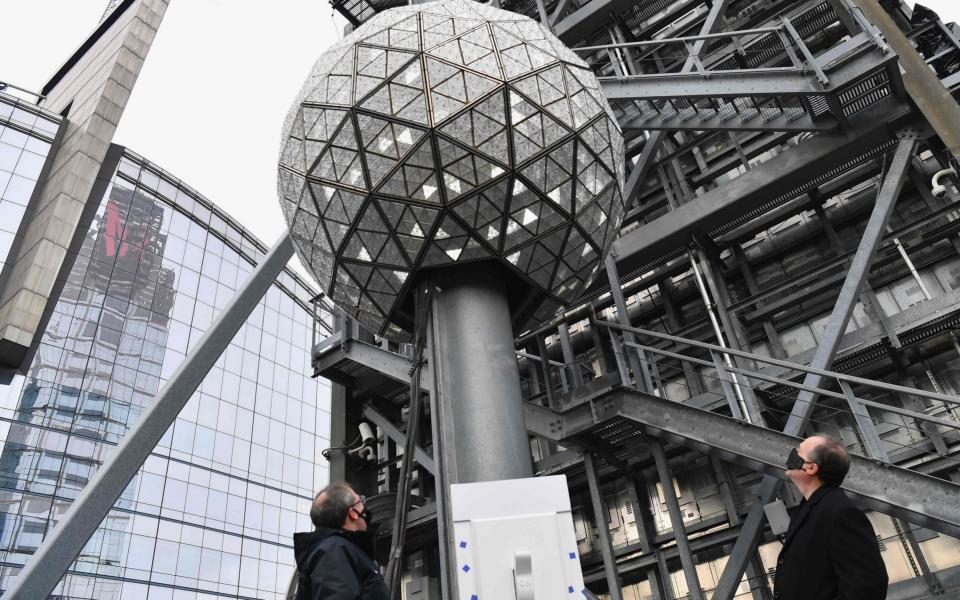
This year, however, police are cordoning off Times Square to the general public and organisers have had to satisfy themselves with a much more limited affair that will be streamed live.
The only guests able to attend in person will be 40 essential workers, such as a grocery store employee, a Covid-19 tester and a teacher, plus their families. They will all be in separate, socially distanced sections.
There will still be a show, fittingly including a performance by Gloria Gaynor of her signature song, “I Will Survive.” Health officials for both the city and state have advised New Yorkers not to gather in large groups and to instead celebrate with just those in their household.
Rio de Janeiro
Often described as the biggest New Year’s Eve celebration in the world, the Brazilian city’s mega-parties are usually centred around its kilometres of tropical beaches.
Copacabana alone reportedly drew around three million people last year, with fireworks launched from rafts in the sea and all-night live music and dancing.
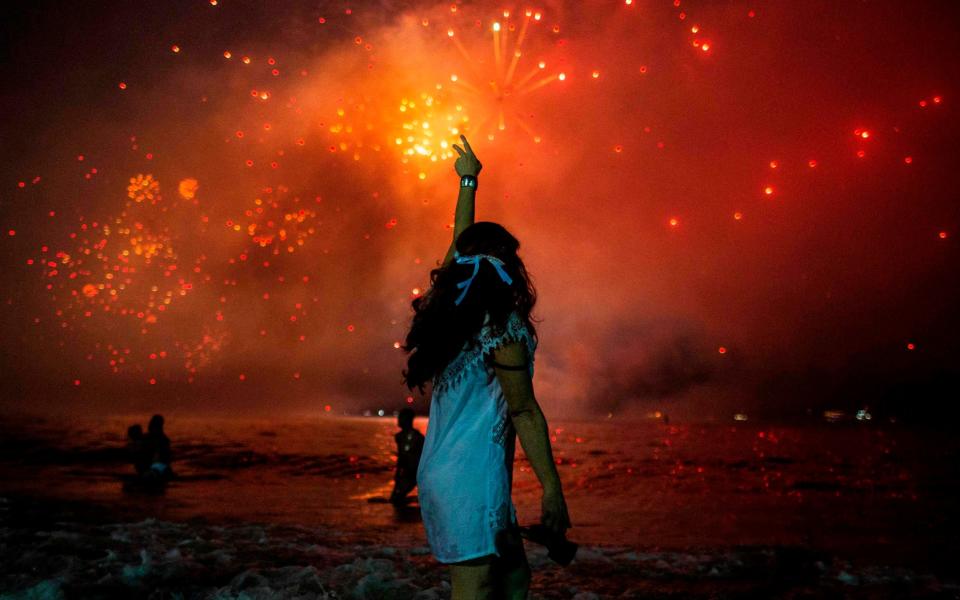
This year, however, Brazilian authorities have announced that they are sealing off the entire 30km stretch of city coastline for New Year’s Eve, including popular party spots Copacabana, Ipanema and Barra da Tijuca.
The firework displays have been banned, and even plans for a broadcasted concert with performances by various bands and DJs held on the city’s sandy shores without an audience have been abandoned.
Those who violate Covid rules face fines of up to $2,800 (£2,050) Mayor Marcelo Crivella's office said in a statement that it had "opted to cancel the event out of respect for all of the victims, and to prioritize security for all".

